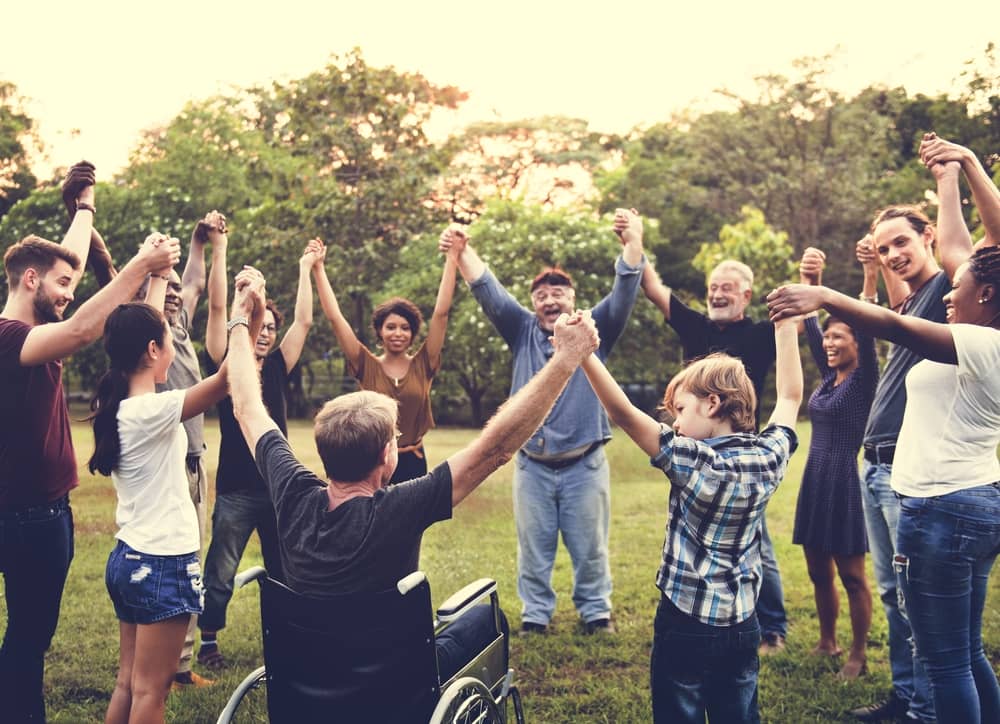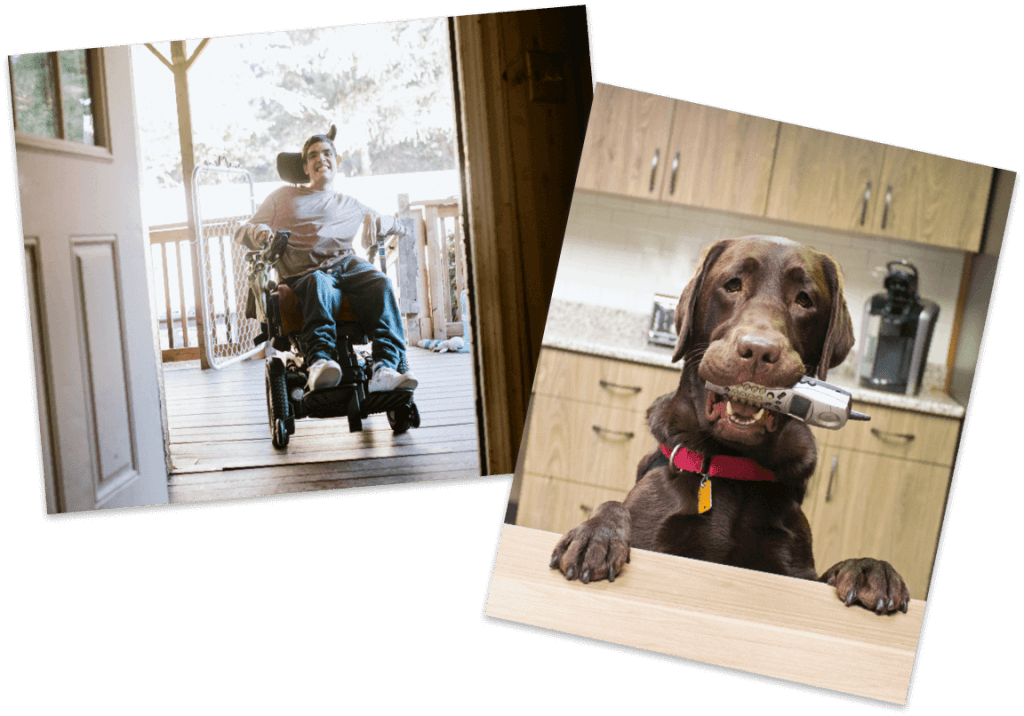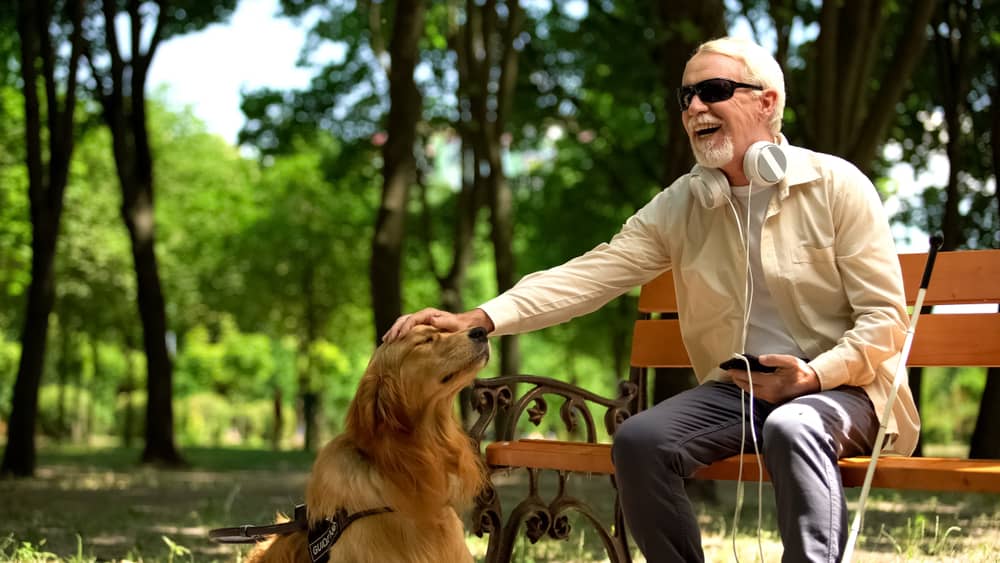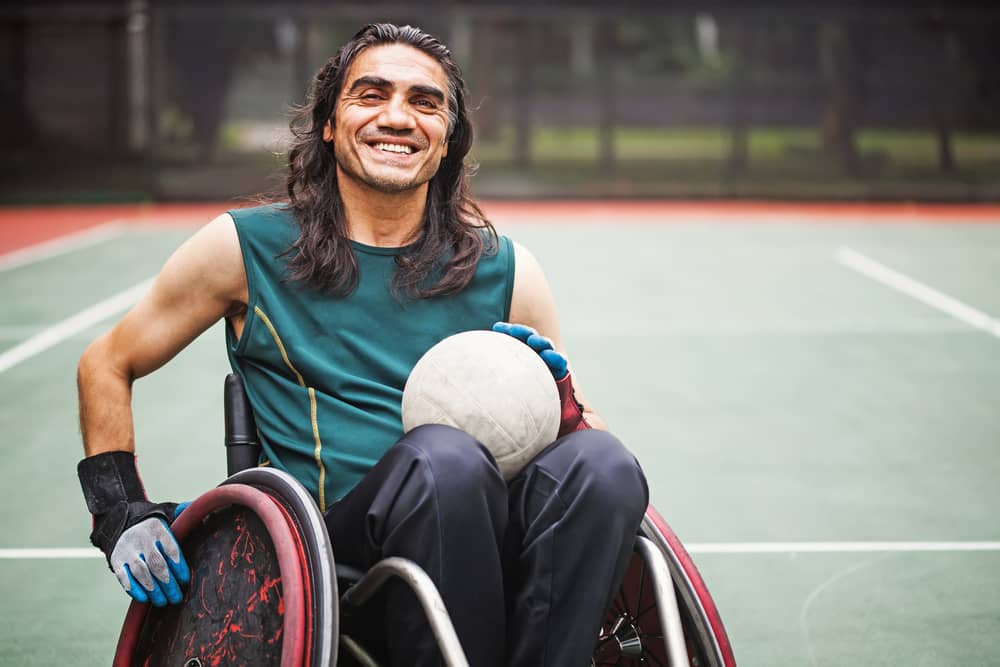Life skills have a significant impact on our personal success, but learning and developing them can be especially difficult for people with disabilities. However, basic life skills for adults with disabilities are essential to living independently or fully participating in an assisted living community.
In this blog, we’ll review the most important life skills for adults with disabilities and provide helpful suggestions for how you can cultivate these crucial abilities.
Table of Contents
What Are Life Skills for Adults with Disabilities?
Regardless of your ability level, life skills are the behavioral, intellectual, and interpersonal qualities necessary to live a productive, satisfying life. Also known as psychosocial skills, these traits fall into three main categories:
- Emotional skills: knowing who you are, handling emotions appropriately, and possessing self-awareness and empathy.
- Social skills: communicating effectively, developing healthy relationships, and successfully interacting with others.
- Thinking skills: developing multiple solutions for problems, remaining open to learning, and approaching topics creatively.
Ultimately, cultivating life skills for adults with disabilities can help you better connect with others while living a more productive and fulfilling life. Keep in mind that certain basic life skills for adults with disabilities may be more or less relevant depending on your specific age, location, or life stage.

Benefits of Building Life Skills for Adults with Disabilities
There are many benefits of developing life skills for adults with disabilities, which we’ll review in more detail below.
Improved Physical & Mental Health
Having basic life skills for adults with disabilities is proven to help you live a healthier life and make better choices. Life skills also allow you to develop self-confidence and personal worth, along with making it easier to deal with significant life changes. This can help reduce feelings of aggression and anger because you’ll have a clear head and an improved ability to analyze difficult situations.
Stronger Relationships
Developing life skills for adults with learning disabilities and physical challenges also makes it easier to form fulfilling relationships, which are proven to make you healthier and happier. Plus, you’ll have the opportunity to positively impact the lives of others while gaining valuable relationship skills.
Live More Independently
Perhaps most importantly, building life skills for adults with disabilities significantly improves your chances of living independently in the comfort of your own home. Depending on your ability level, life skills can also make it easier to maintain employment and manage your finances. You may also be able to complete more of your personal needs without help and rely less on government assistance.
Community Integration
Finally, developing basic life skills for adults with disabilities can help you smoothly assimilate into your community. People with disabilities are often isolated from their non-disabled peers, making it much harder to fully participate in life at the same level as everyone else. As a result, you may miss out on educational opportunities, housing, healthcare, employment, valued social roles, and more.

UDS Can Help You Live A Fuller Life With Our Comprehensive Services:
Planning & Support – Our dedicated planning & support teams help manage the care and services you need.
Personal Care & Independence – We’ve helped people with disabilities live more independently in their own homes since 1965.
Enrichment & Life Skills – Our variety of programs is dedicated to building skills for living well with a disability.
Interpersonal Life Skills Checklist for Adults with Disabilities
If you’re looking to develop your grasp on life skills for adults with developmental disabilities and physical challenges, consider starting with the interpersonal qualities below.
Communication Skills
The ability to achieve specific goals via communication (e.g. informing, persuading, or asserting a position) is an essential interpersonal life skill. This category includes both verbal and nonverbal communication, along with tone of voice, body language, and actively listening to those around you. You can improve your communication skills by using short sentences, common words, active voice, and second-person pronouns.
Creative Thinking Skills
Creative thinking means finding new solutions to problems by redefining them, incorporating relevant information, and being open to a variety of answers. Focusing on fluency (relevant ideas), originality (rare ideas), and elaboration (building on existing ideas) can greatly improve your creative thinking skills.
Critical Thinking Skills
Critical thinking requires reflective thought processes that are centered on deciding what to believe or which actions to take. It involves organizing facts, interrogating ideas, and impartially evaluating arguments, which allows you to make the best judgments based on your situation and take action accordingly.

Decision-Making & Problem-Solving Skills
Put simply, decision-making is the process of identifying options and selecting the best one based on your values, beliefs, and goals. Effective decision-making requires you to define the problem, determine the requirements of an effective solution, establish the decision’s goals, and make a choice.
Closely related to decision-making, problem-solving involves using self-determination to apply your relevant knowledge and overall understanding to succeed in a difficult or unfamiliar situation.
Emotional Intelligence
Emotional intelligence is an extremely important life skill that requires the ability to understand and sympathize with another person’s feelings. Empathy is a key aspect of emotional intelligence, as it helps you put yourself in someone else’s shoes, allowing you to see situations from their perspective. Developing emotional intelligence requires a low fear of rejection, the ability to adapt to a variety of social settings, acceptance of others, and emotional self-awareness.
Mental Resilience & Coping Skills
The ability to cope with your emotions (especially when it comes to challenging situations) positively impacts both your well-being and relationships with others. Treat disappointing outcomes as opportunities for growth, and maintain resilience in the face of stress and discomfort.
Healthy coping skills include maintaining a positive mindset, unwavering optimism, the ability to generate beneficial emotions, and knowing how to express your feelings in a productive manner.
Self-Awareness
Another important interpersonal life skill for adults with disabilities is an awareness of how others perceive you. Practice frequent reflection and introspection, along with mindfully considering the actions you take and why you are the way you are. At the same time, avoid self-deprecating thoughts by focusing on your worth, acknowledging your strengths, remaining self-compassionate, and minimizing regret.
Other Important Life Skills for Adults with Disabilities
Interpersonal traits aren’t the only basic life skills for adults with disabilities that are essential to a fulfilling existence. We’ll review a few more important competencies below to help you get started.
Exercise & Physical Fitness
- Lowers your risk of type 2 diabetes, heart disease, and obesity
- Improves physical strength and boosts energy for a longer life
- Builds confidence and improves body image
- Strengthens focus and stimulates brain activity

Home Management
- Basic housekeeping (e.g. laundry, cleaning, and pet care)
- Money management skills (e.g. budgeting, saving, and getting out of debt)
- Emergency preparedness and basic first aid
- Regular vehicle maintenance (e.g. inspections and oil changes)
Nutrition
- Grocery shopping, meal planning/preparation, and cooking
- Boosts energy levels and helps you maintain a healthy weight
- Reduces your risk of some illnesses and diseases later on in life
Personal Hygiene
- Bathing/showering, brushing your teeth, and using deodorant daily
- Builds self-confidence and makes you more approachable
- May help you make new friends or secure a job interview
How Do Adults Learn Life Skills with Disabilities?
There are a variety of methods that adults with disabilities can use to cultivate the skills they need to succeed in their daily lives. Physical life skills are often developed through physical therapy, while self-care, eating, and writing may require an occupational therapy setting.
Here are a few other ways you can build life skills for adults with disabilities on your own:
- Shadowing another person as they perform tasks
- Reviewing a photo sequence of a task with written steps
- Examining a task in the place where it usually takes place
- Breaking tasks into small steps and learning them one at a time
- Backward chaining
- Loving-kindness meditation
- A gratitude journal
- Positive affirmations
Life Skills Services from UDS
If you need assistance with basic life skills for adults with disabilities, United Disabilities Services is here for you. Here are three ways that we can help you develop stronger life skills.
Adult Enrichment Program
Our Adult Enrichment day programs answer the question, “how to teach life skills to adults with disabilities” by providing the opportunity to socialize, learn, and share your talents. In turn, you’ll gain valuable life skills as you explore your community with friends.
Adult Enrichment is available to anyone with a physical or intellectual disability between the ages of 18-59. Your costs may be covered through government-funded waiver sources, and you can also pay privately.
UDS Employment Services Program
The UDS Employment Services program matches qualified applicants with employers that are looking for full- and part-time employees. Our employment counselors work with you one-on-one throughout the application process, along with on-the-job coaching once you begin working.
Many participants qualify for government assistance and are referred through the Pennsylvania Office of Vocational Rehabilitation (OVR). Anyone referred by the OVR is eligible for vocational services at no additional cost.
UDS Transition School
Designed for high school juniors and seniors, our Transition School will help you prepare for independent life after graduation. Our instructors work with small groups one-on-one and focus on each person’s area of specific need. You’ll attend classes one day a week and will receive school credit for your participation. Enrollment is free for students who meet scholarship qualifications.
